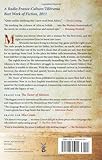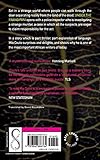Translator's Preface
The Tuner of Silences is one of a number of novels by Mia Couto, Mozambique's most internationally known writer, and the fifth one to have been translated into English. In keeping with some of his previous fiction, this is a narrative involving two story lines told by two different narrators, which alternate and ultimately come together: the first and principal story line is that of Mwanito, whom we first see as a pre-pubescent boy deep in the Mozambican bush, to where he and his brother have been taken by their widower father, Silvestre Vitalício, to escape the past; the second recounts the experiences of Marta, a Portuguese woman who has come to Mozambique to find out the truth about her errant husband's disappearance in the country, a search that inadvertently leads her to the compound where Mwanito and his family live. The compound is, in fact, on an old hunting reserve, which Mwanito's father, in his determination to start the world again, has baptized as 'Jesusalém' (rendered in this translation, as Jezoosalem). These two worlds, the highly protected and regulated tyranny created by Vitalício, and the outside world represented in part by Marta, inevitably clash, and it is this, among other factors, that leads to the demise of Jezoosalem, and the return of the family to the city.
This novel completes a process of transition in Couto's work from narratives set during or still heavily influenced by Mozambique's long civil war, which lasted from very soon after the country became independent in 1975, until 1992, a period the author lived intensely as a newspaper editor, journalist, and writer, while also embarking on studies as an environmental biologist. The war is a distant phenomenon in The Tuner of Silences, and we are only really made conscious of its presence indirectly, but the span of the narrative comes right up to the present, and we are introduced to the world of contemporary urban Mozambique, and some of the issues now openly being debated such as violence towards women, one episode of which is responsible for much of what happens in this novel. Like any good work of literature, The Tuner of Silences can be read on various levels. We can see it as a story about a parent's misguided concern with protective love, but no one familiar with the recent history of Mozambique can read it without thinking of the utopian isolation that the country went through during the regime of Samora Machel, its first president, and 'father' of the nation. Equally, the appearance of Marta engages with Western European perceptions of Africa, and more specifically, a Portuguese confrontation with its own colonial history. Couto is supremely conscious of this need, given that his parents were born in Portugal.
The challenges facing the translator of Mia Couto's prose are diverse. The first relates, of course, to the fact that Portuguese is a European language that has been modified in its Mozambican incarnation, where it rubs shoulders with a range of local African languages. It is undoubtedly this factor that first led Couto to develop a playful attitude towards a language that had to some extent been cut free from the conventions of its European homeland. Although Couto's own linguistic playfulness was more a feature of his first collections of short stories, re-issued most recently in English translation under the title of The Blind Fisherman, he still occasionally indulges his readers. The original Portuguese title of this novel, for example, was Jesusalém, which, for reasons of linguistic stress, not to mention lexical and semantic reverberation, would mean nothing to an anglophone reader. An alternative therefore had to be found from within the body of the text.
More, perhaps, than Couto's experimentation, his narrative style could be described as starkly poetic. The bush, savannah, rivers, sandy earth that surround his characters reflect their soul and the constraints of their dreams. Erroneously termed an exponent of magical realism, Couto writes about people whose deepest beliefs are etched out of their surroundings. His writing belongs more to Beckett than it does to Márquez. More importantly, it belongs to his own realm of experience as a Mozambican of his day and age. - by David Brookshaw
BOOK ONE
I, MWANITO, THE TUNER OF SILENCES
I listen, unaware
Whether what I hear is silence
Or god.
[…]
- Sophia de Mello Breyner Andresen
I was eleven years old when I saw a woman for the first time, and I was seized by such sudden surprise that I burst into tears. I lived in a wasteland inhabited only by five men. My father had given the place a name. It was called, quite simply, Jezoosalem. It was the land where Jesus would uncrucify himself. And that was the end of the matter, full stop.
My old man, Silvestre Vitalício, explained to us that the world had come to an end and we were the only survivors. Beyond the horizon lay territory devoid of any life, that he referred to vaguely as “Over There.” The entire planet could be summed up in a nutshell like this: stripped of people, with neither roads nor traces of any living creature. In those faraway places, even tormented souls had become extinct.
In Jezoosalem, on the other hand, there were only the living. Folk knew nothing of what it was like to yearn for the past or hope for the future, but they were alive. There we were, so alone that we didn’t even suffer from any illnesses, and I believed we were immortal. Round about us, only animals and plants died. And when there was a drought, our nameless river faded into untruth, becoming a little stream that flowed around the back of our camp.
Mankind consisted of me, my father, my brother Ntunzi and Zachary Kalash, our servant who, as you will see, was not a man of any presence at all. And there was no one else. Or almost no one. To tell you the truth, I forgot two semi-inhabitants: the jenny, Jezebel, who was so human that she satisfied the sexual needs of my old father. And I also forgot my Uncle Aproximado. This member of the family needs special mention, for he didn’t live with us in the camp. He lived next to the entrance gate to the game reserve, well beyond the permitted distance, and he only visited us from time to time. From where we lived to his hut was a farness full of hours and wild animals.
For us children, Aproximado’s arrival was an excuse for great rejoicing, a jolt to our tedious routine. Uncle would bring us provisions, clothes, the basic necessities of life. My father would step out nervously to meet the truck piled high with our goods. He would intercept the visitor before he passed the fence that surrounded our dwellings. At this point, Aproximado was obliged to wash himself, so as not to bring in any contamination from the city. He would wash himself with earth and with water, no matter whether it was cold or whether night had fallen. After his bath, Silvestre would unload the truck, hurrying his delivery and hastening his departure. In a flash, quicker than a wing beat, Aproximado would once again disappear beyond the horizon before our anguished gaze.
—He’s not a real brother— Silvestre would justify himself. —I don’t want too much talk, the man doesn’t know our customs.
This little cluster of humanity, joined like the five fingers on a hand, was, however, divided: my father, Uncle and Zachary were dark-skinned; Ntunzi and I were black as well, but had lighter skin.
—Are we a different race?— I asked one day.
My father replied: —No one is from one race alone. Races— he said —are uniforms we put on.
Maybe Silvestre was right. But I learnt too late that the uniform sometimes sticks to the soul of men.
—You get that light skin from your mother, Dordalma. Little Alma had a touch of mulatto in her— Uncle explained.
* * *
Family, school, other people, they all elect some spark of promise in us, some area in which we may shine. Some are born to sing, others to dance, others are born merely to be someone else. I was born to keep quiet. My only vocation is silence. It was my father who explained this to me: I have an inclination to remain speechless, a talent for perfecting silences. I’ve written that deliberately, silences in the plural. Yes, because there isn’t one sole silence. Every silence contains music in a state of gestation.
When people saw me, quiet and withdrawn in my invisible sanctum, I wasn’t being dumb. I was hard at it, busy in body and soul: I was weaving together the delicate threads out of which quiescence is made. I was a tuner of silences.
—Come here, son, come and help me be quiet.
At the end of the day, the old man would sit back in his chair on the veranda. It was like that every night: I would sit at his feet, gazing at the stars high up in the darkness. My father would close his eyes, his head swaying this way and that, as if his tranquillity were driven by some inner rhythm. Then, he would take a deep breath and say:
—That was the prettiest silence I’ve ever heard. Thank you, Mwanito.
It takes years of practice to remain duly silent. I had a natural gift for it, some ancestral legacy. Maybe I inherited it from my mother, Dona Dordalma, who could be sure? She was so silent, she had ceased to exist and no one even noticed that she no longer dwelt among us, the lively living.
—You know son: there’s the stillness of cemeteries. But the quiet of this veranda is different.
My father. His voice was so discreet that it seemed just another type of silence. He coughed a bit and that hoarse cough of his was a hidden speech, without words or grammar.
In the window of the next house, the flickering light of an oil lamp could be seen. My brother was keeping an eye on us for sure. My heart was scuffed with guilt: I was the chosen one, the only one to share intimacies with our eternal progenitor.
—Aren’t we going to call Ntunzi?
—Leave your brother to himself. You’re the one I like to be alone with.
—But I’m almost falling asleep, Father.
—Just stay a bit longer. I’ve got so much rage inside me, so much pent-up rage. I need to drown this rage, and I haven’t got the strength.
—What rage is this, Father?
—For many years, I gave sustenance to wild beasts thinking they were household pets.
I was the one who complained of feeling sleepy, but he was the one who was falling asleep. I left him nodding off in his chair and went back to the room where Ntunzi was waiting for me, wide awake. My brother looked at me with a mixture of envy and commiseration:
—Did he give you all that nonsense about silence again?
—Don’t talk like that, Ntunzi.
—That old man’s gone mad. And to top it all off the guy doesn’t like me.
—He does.
—Why doesn’t he ever call me then?
—He says I’m a tuner of silences.
—And do you believe him? Can’t you see it’s all a big lie?
—I don’t know, brother, what can I do if he wants me to sit there all nice and quiet?
—Don’t you understand it’s all just talk? The truth of it is you remind him of our dead mother.
Ntunzi had reminded me a thousand times why my father had chosen me as his favourite. The reason for this preference of his had originated in one never-repeated instant: at our mother’s funeral, Silvestre didn’t know how to express his grief in public, and took himself off into a corner in order to cry his eyes out. That was when I approached my father and he got down on his knees so as to look into my three-year-old face. I raised my arms and instead of wiping away his tears, I placed my little hands over his ears. As if I were trying to turn him into an island and were distancing him from anything that had a voice. Silvestre shut his eyes inside this echoless haven: and he saw that Dordalma had not died. His arm stretched blindly in the shadow:
—My dearest Alma!
That was the last time he uttered her name. Nor did he ever again openly recall the time when he had been a husband. He wanted it all kept quiet, consigned to oblivion.
—And you, my son, must help me.
As far as Silvestre Vitalício was concerned, my vocation had been decided: I was to take care of this incurable absence, put out to pasture those demons that consumed his sleep. One time, when we were busy sharing our silence, I broached the subject:
—Ntunzi says I remind you of our mother. Is that so, Father?
—It’s the opposite, you protect me from those memories. It’s that Ntunzi who keeps bringing back the afflictions of the past to me.
—Do you know something, Father? Yesterday I dreamed of my mother.
—How can you dream of someone you never knew?
—I knew her, I just don’t remember.
—That’s the same thing.
—But I remember her voice.
—What voice? She hardly ever said a word.
—I can remember a peace that seemed, I don’t know, that seemed like water. Sometimes I think I can remember the house, the great peacefulness of that house . . .
—And Ntunzi?
—What about Ntunzi, Father?
—Is he so sure he can remember your mother?
—Not a day goes by without him recalling her.
My father didn’t answer. He brooded despondently for a while and then, his voice hoarse as if he’d been to the depths of his soul and back, he declared:
—I’m going to say this once and never again: you children can’t remember anything or dream of anything at all.
—But I do dream, Father. And Ntunzi can remember so many things.
—It’s all a lie. What you dream is what I produced in your heads. Do you understand?
—I understand, Father.
—And whatever you remember, I’m the one who planted it in your heads.
A dream is a conversation with the dead, a journey to the land of the souls. But there were no longer any dead, nor was there a territory for the souls. The world had ended and its demise brought with it obliteration: death without any dead. The land of the departed had been annulled, the realm of the gods cancelled. That’s what my father said all in one breath. Even today, I find Silvestre Vitalício’s explanation harrowing and confusing. But at that particular moment, he was peremptory:
—That’s why you must neither dream nor remember. Because I don’t dream or remember.
—But Father, don’t you have any memory of our mother?
—Not of her, not of the house, not of anything. I don’t remember anything any more.
He got up with a groan to go and heat up the coffee. His steps were like a baobab pulling up its own roots. He looked at the fire as if he were looking at himself in a mirror, then closed his eyes and inhaled the aromatic steam rising from the coffee pot. And with his eyes still shut, he whispered:
—I’m going to confess a sin: I stopped praying when you were born.
—Don’t say that, Father.
—I’m telling you.
Some people have children in order to get closer to God. He had become God when he became my father. That’s what Silvestre Vitalício said. And he continued: the falsely downhearted, the insincere loners, they believe that their lamentations are heard in the heavens.
—But God is deaf— he said.
He paused so as to raise his cup and taste his coffee with relish, and then he insisted:
—And even if he wasn’t deaf: what is there to say to God?
In Jezoosalem, there was no church of stone with a cross in it. My father made a cathedral out of my silence. It was there that he awaited God’s return.
Excerpt published with permission from Biblioasis, ON, Canada.
David Brookshaw has translated a number of books by Mia Couto including Sleepwalking Land, Under the Frangipani and The Last Flight of the Flamingo. He has also compiled an anthology of stories by the Portuguese writer José Rodrigues Miguéis called Polyhedric Mirror: Tales of American Life and has translated stories of immigrant life in North America by the Portuguese/Azorean/New England writer Onésimo Almeida titled Tales from the Tenth Island. He is Professor of Luso-Brazilian Studies at Bristol University, UK, with a specialist interest in postcolonial literatures in Portuguese, comparative literature, and literary translation.




